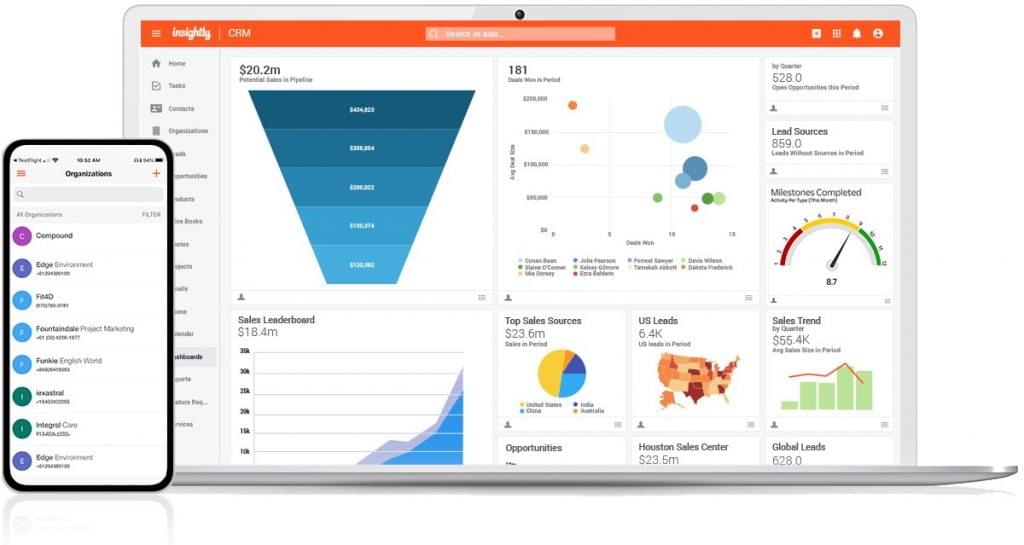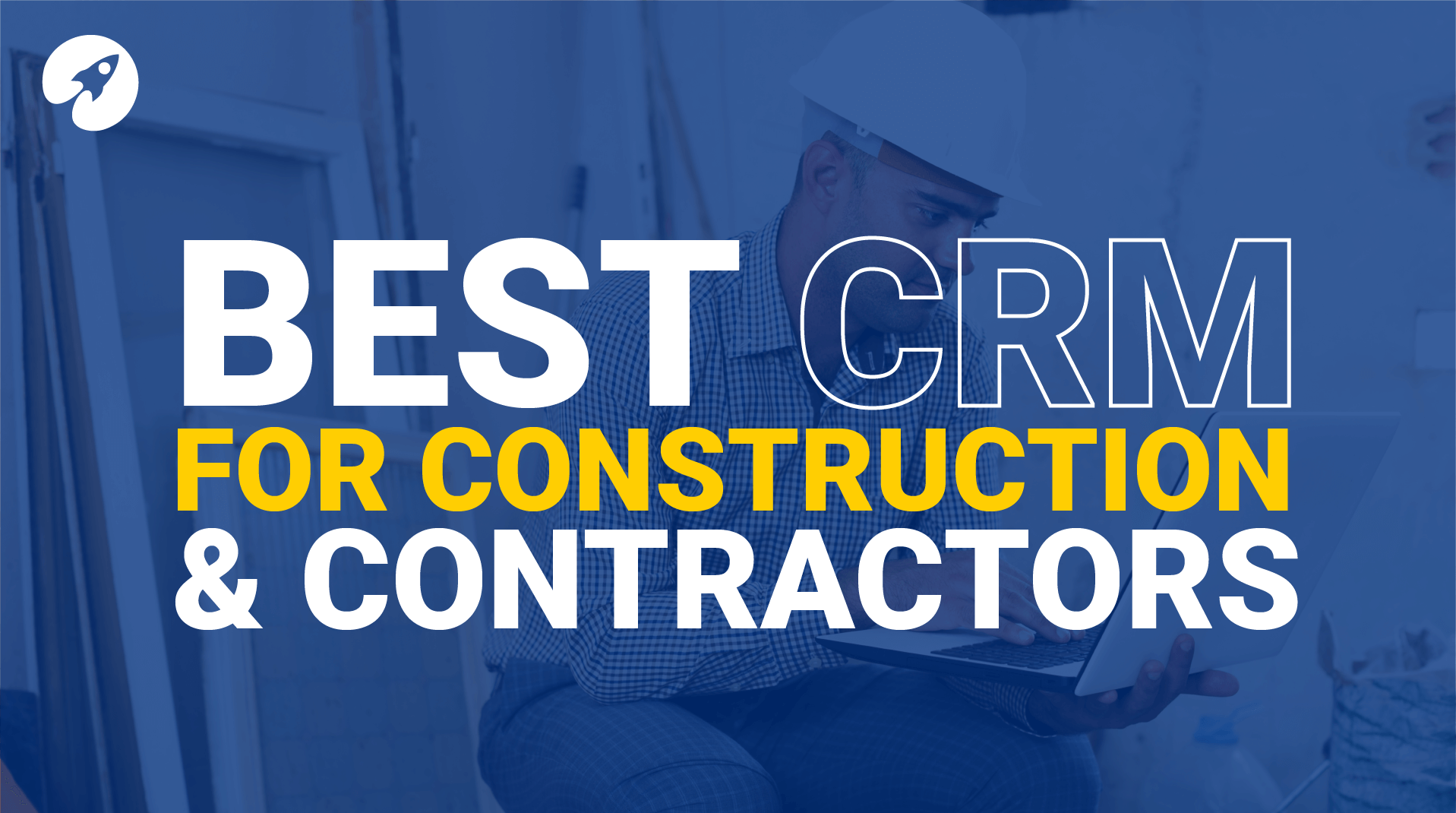In the competitive landscape of the construction industry, the best contractor CRM (Customer Relationship Management) system can be a game-changer. A robust CRM empowers construction businesses to streamline operations, enhance efficiency, and foster stronger customer relationships. This comprehensive guide will delve into the essential aspects of selecting, implementing, and leveraging a Contractor CRM to maximize its transformative potential.
With a Contractor CRM, construction companies can gain real-time visibility into projects, manage leads effectively, schedule appointments effortlessly, generate invoices seamlessly, and facilitate seamless communication with clients and team members. By integrating the CRM with other business systems, businesses can further enhance data accuracy, reduce manual entry, and achieve greater efficiency.
Definition and Scope
Definition of Contractor CRM
A Contractor CRM (Customer Relationship Management) system is a specialized software designed to manage the interactions between construction companies and their clients, leads, and partners.
It centralizes and streamlines all customer-related information, enabling contractors to track leads, nurture relationships, manage projects, and provide exceptional customer service.
Purpose and Key Features
The primary purpose of a Contractor CRM is to improve efficiency and productivity in construction operations. Key features typically include:
- Contact management: Centralized database for storing and managing client, lead, and partner information.
- Lead tracking: Tracking and qualifying leads throughout the sales pipeline.
- Project management: Integration with project management tools for seamless collaboration and progress tracking.
- Customer support: Ticketing system and knowledge base for managing customer inquiries and providing support.
- Reporting and analytics: Comprehensive reporting and analytics to track key performance indicators (KPIs) and identify areas for improvement.
Benefits of Using a Contractor CRM
Implementing a Contractor CRM can provide numerous benefits, including:
- Improved lead generation and conversion rates.
- Enhanced customer satisfaction and retention.
- Increased project efficiency and profitability.
- Streamlined communication and collaboration.
- Data-driven decision-making and forecasting.
Key Considerations
Selecting the optimal Contractor CRM necessitates careful evaluation of various crucial factors. These considerations encompass functionality, ease of use, integration capabilities, and cost. Moreover, aligning the CRM with the specific requirements and workflows of a construction business is paramount.
Functionality
- The CRM should cater to the unique requirements of construction businesses, such as project management, lead tracking, and document management.
- Consider the specific features and modules that are essential for your business operations.
- Ensure that the CRM offers robust functionality to support your core processes.
Ease of Use
A user-friendly interface is crucial for efficient adoption and utilization. Consider the following aspects:
- Intuitive navigation and clear user interfaces.
- Minimal training requirements for users.
- Mobile accessibility for remote work and site management.
Integration Capabilities
Seamless integration with other software applications is essential for streamlined operations. Evaluate the CRM’s ability to integrate with:
- Accounting and financial management systems.
- Project management tools.
- Communication and collaboration platforms.
Cost
The cost of the CRM should align with your budget and provide a reasonable return on investment. Consider the following factors:
- Licensing fees and subscription costs.
- Implementation and customization expenses.
- Ongoing maintenance and support costs.
Alignment with Business Needs
The CRM should align with the specific needs and workflows of your construction business. Consider the following:
- The size and complexity of your business operations.
- The industry-specific requirements of your construction niche.
- The unique processes and workflows that your business follows.
Features and Functionality

To maximize project efficiency and streamline operations, selecting a Contractor CRM with comprehensive features is crucial. These features empower contractors to enhance project visibility, streamline workflows, and improve collaboration.
Key features to consider include:
Project Management
- Task management and scheduling
- Project budgeting and tracking
- Document management and sharing
These features provide a centralized platform for managing projects, ensuring timely task completion, staying within budget, and facilitating seamless collaboration among team members.
Lead Tracking
- Lead capture and qualification
- Lead nurturing and follow-up
- Lead conversion tracking
Effective lead tracking enables contractors to identify and qualify potential clients, nurture relationships, and track their progress through the sales pipeline, ultimately increasing conversion rates.
Scheduling
- Appointment scheduling
- Resource scheduling
- Calendar integration
Scheduling features streamline appointment and resource management, allowing contractors to optimize their schedules, reduce double-booking, and improve coordination with clients and team members.
Invoicing
- Invoice creation and tracking
- Payment processing
- Tax calculations
Robust invoicing capabilities simplify the billing process, ensuring timely invoice delivery, accurate payment tracking, and seamless tax calculations, reducing the risk of errors and delays.
Communication Tools
- Email integration
- Text messaging
- Collaboration tools
Integrated communication tools enhance collaboration and communication within teams and with clients. Contractors can send emails, text messages, and collaborate on documents in real-time, fostering efficient communication and keeping everyone informed.
4. Integration and Customization
An effective Contractor CRM should seamlessly integrate with other business systems, such as accounting software, project management tools, and customer relationship management (CRM) systems. Integration ensures data accuracy, eliminates manual entry, and enhances overall efficiency.
By integrating the CRM with accounting software, contractors can automatically sync financial data, reducing errors and streamlining billing and invoicing processes. Integration with project management tools allows contractors to track project progress, manage resources, and monitor costs in real-time. CRM integration enables contractors to manage customer relationships, track leads, and provide personalized communication.
Customizing the CRM
In addition to integration, customization is crucial to ensure the CRM meets the specific requirements of a construction business. Contractors can customize the CRM to suit their unique processes, workflows, and data structures.
- Customizable fields and dashboards allow contractors to tailor the CRM to their specific needs, ensuring that the data they need is readily available.
- Customized reports and analytics provide contractors with insights into their business performance, helping them make informed decisions.
- Integration with third-party applications and plugins extends the functionality of the CRM, allowing contractors to integrate specialized tools and services.
5. Implementation and Best Practices
A successful Contractor CRM implementation requires careful planning and execution. Here are some best practices to guide you through the process:
Data migration is a critical step in CRM implementation. Ensure that your existing data is cleaned, standardized, and migrated accurately to avoid errors and data loss.
User Training, Best contractor crm
Provide comprehensive training to your team on how to use the CRM effectively. This will ensure that they are proficient in using the system and can maximize its benefits.
Ongoing Support
Establish a reliable support system to address any issues or questions that may arise during CRM usage. This will help ensure smooth operation and minimize disruptions.
Maximizing Benefits
To maximize the benefits of your Contractor CRM, focus on:
- Customizing the CRM to meet your specific business needs.
- Integrating the CRM with other essential business systems.
- Regularly reviewing and optimizing CRM usage to identify areas for improvement.
Avoiding Common Pitfalls
To avoid common pitfalls in CRM implementation, be mindful of:
- Lack of user adoption due to inadequate training or resistance to change.
- Data integrity issues due to poor data migration or lack of data governance.
- Over-customization that can lead to complexity and maintenance challenges.
6. Case Studies and Success Stories: Best Contractor Crm

Contractor CRMs have transformed construction businesses worldwide. Here are real-world examples of their impact:
A leading construction company implemented a CRM and saw a 25% increase in project efficiency. The CRM streamlined communication, automated tasks, and provided real-time visibility into project progress.
Case Study: ABC Construction
- ABC Construction, a large-scale construction company, implemented a Contractor CRM to manage its complex projects.
- The CRM centralized customer data, automated workflows, and improved communication among team members.
- As a result, ABC Construction experienced a 30% reduction in project delays, a 20% increase in customer satisfaction, and a 15% increase in profit margins.
Testimonial from a Construction Professional
“Our Contractor CRM has been a game-changer for our business. It has helped us streamline our operations, improve communication, and increase our profitability. We highly recommend it to any construction company looking to improve their efficiency and customer satisfaction.”
– John Smith, Project Manager at XYZ Construction
7. Emerging Trends and Future Outlook
The Contractor CRM landscape is continuously evolving, driven by technological advancements and changing industry needs. Emerging trends in Contractor CRM technology include:
Artificial Intelligence (AI)
AI is transforming CRMs by automating tasks, providing insights, and enhancing customer interactions. AI-powered CRMs can analyze customer data to identify patterns, predict behavior, and offer personalized recommendations. They can also automate tasks such as lead scoring, appointment scheduling, and follow-up communications.
Mobile Technology
The increasing use of mobile devices has led to the rise of mobile-first CRMs. These CRMs are designed to be accessible and easy to use on smartphones and tablets. They allow contractors to manage their customer relationships on the go, track progress, and stay connected with their teams.
Cloud Computing
Cloud-based CRMs offer flexibility, scalability, and cost-effectiveness. They eliminate the need for on-premise hardware and software, allowing contractors to access their CRM data from anywhere with an internet connection. Cloud CRMs also enable easy collaboration and data sharing among team members.
Benefits of Emerging Technologies
- Improved efficiency and productivity
- Enhanced customer experiences
- Data-driven decision-making
- Increased mobility and flexibility
- Reduced costs
Challenges of Emerging Technologies
- Data security and privacy concerns
- Integration with existing systems
- Cost of implementation and maintenance
- Training and adoption
- Ethical considerations
As these emerging technologies continue to mature and become more widely adopted, they will reshape the way contractors manage their customer relationships. By embracing these trends, contractors can stay competitive and deliver exceptional customer experiences.
Final Summary
The adoption of a Contractor CRM is a strategic investment that can revolutionize the way construction businesses operate. By embracing the latest advancements in technology, construction companies can unlock new levels of productivity, customer satisfaction, and profitability. As the industry continues to evolve, CRMs will undoubtedly play an increasingly pivotal role in shaping the future of construction management.
FAQ Guide
What are the key benefits of using a Contractor CRM?
Contractor CRMs offer numerous benefits, including improved project visibility, streamlined workflows, enhanced collaboration, increased efficiency, and improved customer satisfaction.
How do I choose the right Contractor CRM for my business?
Consider factors such as functionality, ease of use, integration capabilities, cost, and alignment with your specific business needs and workflows.
What are the best practices for implementing a Contractor CRM?
Best practices include data migration, user training, ongoing support, maximizing benefits, and avoiding common pitfalls.